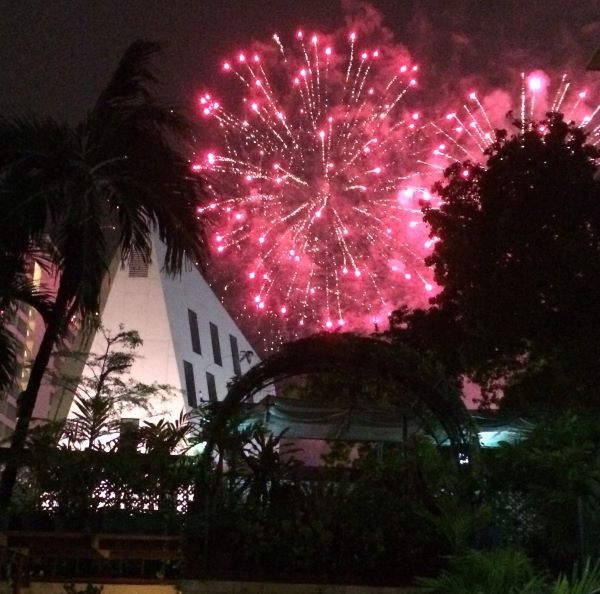People celebrate the first of January in most countries around the world these days. Possibly the only Islamic country that bans New Year’s Eve celebrations on religious grounds is Afghanistan. There, the sale of goods in connection with the celebrations is also illegal. In many other Islamic states, the New Year celebration is a social occasion, not a religious one. In Syria, for example, some families celebrate New Year’s Eve with a dinner of family and friends, often in restaurants and clubs. In Syria, there are also game shows where people go to win money. Official television stations broadcast the New Year countdown and speculate about expectations for the New Year. People also burn fireworks. In war years, gunmen fire shots into the air.
New Year’s celebrations did not and do not always take place from December 31 to January 1. Often astronomical or agricultural phenomena provided causes for it. The ancient Babylonians, for example, began the New Year after the equinox at the end of March. In the Egyptian civilization, the floods of the Nile River played the decisive role. The night of January 13 marks the celebration of the Amazigh New Year in North Africa. Nowruz (Persian and Kurdish New Year) is every year on March 21st. All Muslims and Arabs determine the Hijri year based on the moon. According to the lunar cycles, it comprises 354 days. Muslims do not usually celebrate the beginning of the Hijri year, but in most Islamic countries they celebrate the Prophet’s birthday, which however falls on a different day. The beginning of the Chinese New Year is the second full moon after the winter solstice. For many Christian countries, Pope Gregory III standardized the change of year from December 31 to January 1. In the Catholic Church and Christian-dominated states, “New Year’s Eve”, also known as Silvester, which falls on 31st December is considered a feast and holiday. The term dates back to the 4th century death anniversary of the early Christian Pope Sylvester. The Coptic Church in Egypt, for example, deviates from this doctrine, celebrating the New Year on January 7.
tun21123001
Ein Feuerwerk zu Silvester. Foto: Ute Kaiser.




